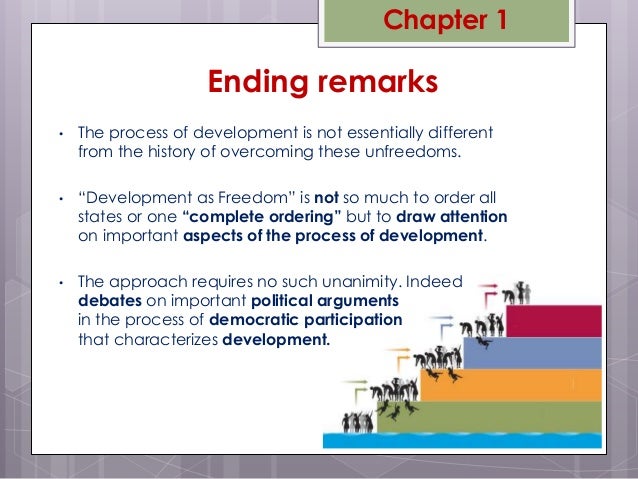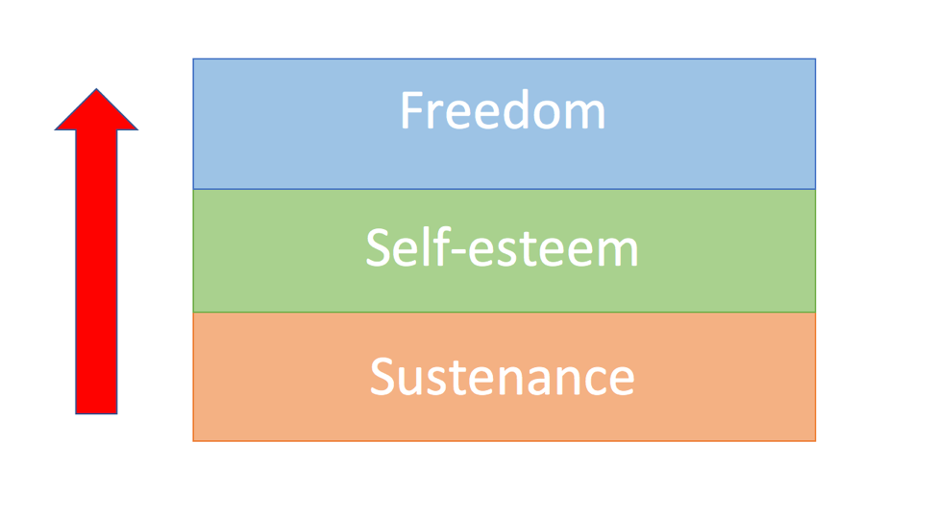


This acknowledgement can be based on empirical analysis of the consequences of - and interconnections between - freedoms of distinct kinds, and on the evidence that freedoms of different types typically help to sustain each other. Freedom is not only the ultimate end of development it is also a crucially effective means. These are, of course, valuable - often crucially important - accomplishments, but their value must depend on what they do to the lives and freedoms of the people involved.įreedom is not only the ultimate end of development it is also a crucially effective means.The relation between freedom and development goes, however, well beyond this constitutive connection. Development can scarcely be seen merely in terms of enhancement of inert objectives of convenience, such as a rise in the GNP (or in personal incomes), or industrialization, or technological advance, or social modernization.

The former is an evaluative claim and includes appreciation of the principle that the assessment of development cannot be divorced from the lives that people can lead and the real freedoms that they enjoy. In contrast with each of these distinct views, a good starting point for the analysis of development can be the basic recognition that freedom is both (1) the primary objective, and (2) the principal means of development. It is important to counter, in a comprehensive and congruous way, the diverse manifestations of this skepticism about freedom, which can be found plentifully across the contemporary world. Their common suspicion of freedom leads to the advocacy - and imposition - of “unfreedom” of one kind or another, in political, economic, or social fields. The latter group can entertain disparate beliefs, held by different (and often conflicting) schools of thought, with very different diagnoses of the alleged poison: democratic rights, civil liberties, freedom of market transactions, or basic social opportunities (such as emancipation involved in women’s being schooled). While some see freedom as a great ally of progress, others are fearful of individual freedom as a spoiler of development and as a source of adversity. The relationship between freedom and development has been debated - explicitly or by implication - for a very long time. In 1998, he was awarded the Nobel Prize in Economic Sciences. Sen is Lamont University Professor, and Professor of Economics and Philosophy, at Harvard University. These issues have been more fully discussed in Development as Freedom (Oxford University Press, 1999). In this brief paper, Professor Sen articulates the themes of the lecture he delivered at the Center on Tuesday, April 3, 2001.


 0 kommentar(er)
0 kommentar(er)
